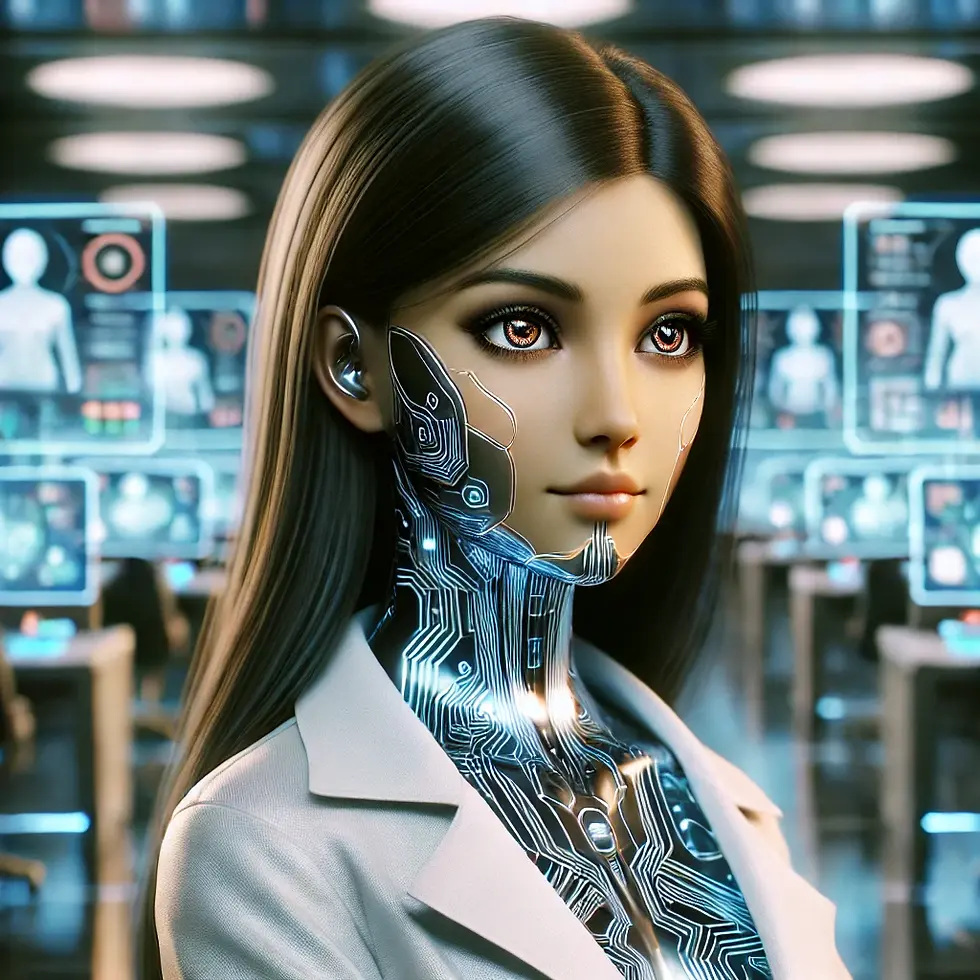Tech Roundup: Innovations & Concerns of the Week
- caffeine conversations

- Oct 15, 2024
- 3 min read
Here’s a brief overview of the most recent major happenings in tech.
We, Robot: The Future of Robotics
The We, Robot event, held annually, is a prominent gathering where experts from robotics, AI, law, and ethics come together to explore the future of robotics and its societal implications. This year’s event, on October 10th, showcased major advances in autonomous systems, drones, and humanoid robots.
One of the standout moments was the unveiling of Tesla’s robotaxi, which introduced not only a bold business model but also an emphasis on environmental benefits. The robotaxi concept promises to reduce the need for car parks, lower emissions, and offer a new pricing model designed to make transportation more affordable and efficient. The fusion of convenience and sustainability in this unveiling sparked excitement, but it also raised deeper questions about the future of autonomous transportation.
A key theme of the event was accountability. If an autonomous robot or vehicle causes harm, who should be held responsible? Attendees explored the necessity of developing regulatory frameworks that balance the need for innovation with the protection of society. The conversations also covered robot rights, the intersection of privacy and robotics, and the increasingly significant role of AI in transforming industries like healthcare and defence.
However, it was revealed after the event that the humanoid robots were being controlled by humans, rather than operating autonomously with AI. This revelation stirred debate about the overhyped promises surrounding the immediate future of robotics. While fully autonomous robots remain on the horizon, their current limitations suggest that human operators still play a crucial role in most systems.
Overall, the event was both informative and entertaining, leaving attendees with key takeaways: focusing on environmental sustainability and enhancing "human convenience" (foreshadowing?). These themes are likely to shape the next wave of robotics innovation, ensuring that future developments not only improve lives but also address pressing global issues.
You can watch the full event here: https://www.tesla.com/we-robot
Orion Meta Glasses: Convenience vs Privacy Concerns
Meta’s Orion Glasses represent a bold step forward in the realm of augmented reality (AR). Unlike traditional AR headsets, these glasses aim to seamlessly integrate into daily life, offering hands-free access to calls, messaging, and even social media. Users can interact with the virtual world while performing real world tasks, making the technology incredibly convenient.
However, convenience comes at a cost, which is privacy. With built-in cameras and microphones, the glasses are capable of recording videos, taking pictures, and capturing audio without drawing much attention. This has raised significant privacy concerns, as the discreet nature of the recording could be exploited. Questions are being asked about how Meta plans to handle the massive amount of data these devices collect and whether users can trust that their privacy will be respected. These concerns are especially relevant given Meta’s history of data privacy controversies.
I would recommend watching this video to further understand the concerns around AR glasses: https://x.com/AnhPhuNguyen1/status/1840786336992682409
Meta's AI Movie Generator: A New Era of Storytelling
Meta is also making headlines with its AI-powered movie generation technology, which represents a huge leap in the entertainment industry. By using AI to generate short films based on simple text prompts, Meta is pushing the boundaries of content creation. This technology uses machine learning algorithms to transform text-based input into visual stories, effectively taking on the roles of scriptwriter, director, and editor.
While the technology promises to democratise filmmaking, basically allowing anyone with an idea to produce films, it also raises profound questions about creativity and intellectual property. Can AI-generated content be considered original art? What does this mean for the future of human creators in industries that traditionally rely on creativity, like filmmaking, design, and even gaming?
Another concern is the potential for misuse, as AI-generated content can easily be manipulated to create deepfakes or spread misinformation. Meta has stated that they are aware of these risks and are working to implement safeguards, but as the technology evolves, the challenge will be finding the right balance between creative freedom and responsibility.
If you have the time, I’d suggest taking a look at how real the sound and videos feel on their site: https://ai.meta.com/research/movie-gen/
Written by Jiya Bharti





Comments